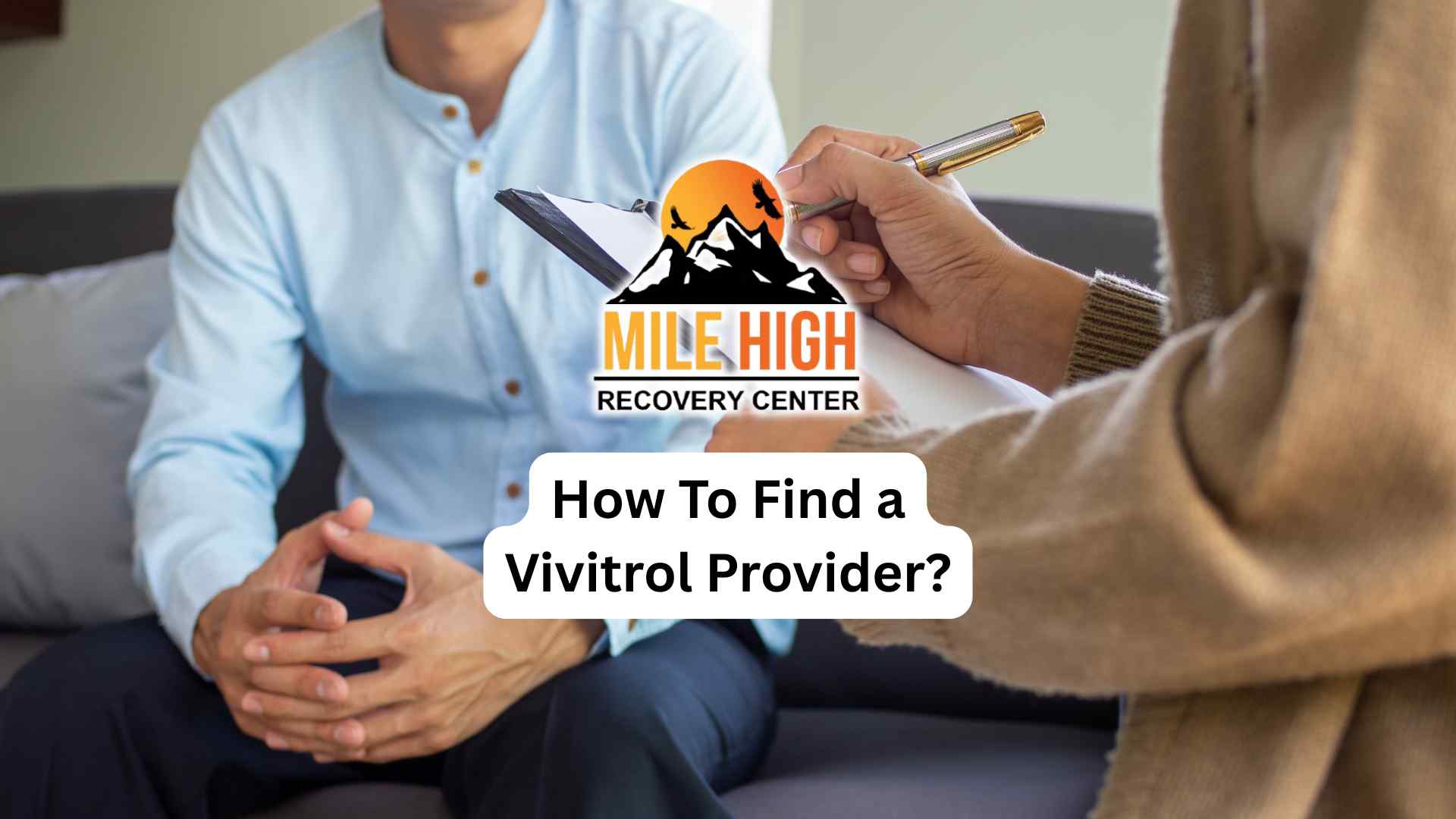Opioid and alcohol dependence can be challenging to overcome and often require a well-coordinated treatment plan. Vivitrol has proven effective in helping individuals manage both opioid and alcohol use disorders. However, to begin treatment with Vivitrol, it’s essential to first find a qualified healthcare provider who can prescribe and administer the injection.
In this article, we will discuss how to find a provider, including where to start, the steps involved, and what to expect during the process. We will also explain why it’s important to work with a qualified healthcare provider and provide guidance on what resources are available to help you get started with Vivitrol treatment.

What is Vivitrol and How Does It Work?
Vivitrol® is an injectable form of naltrexone used to treat opioid dependence and alcohol dependence. It works as an opioid antagonist, meaning vivitrol blocks the effects of opioids on the brain. When administered, it prevents the euphoric “high” caused by opioids, including heroin, prescription pain medications, and other opioids. This helps reduce the risk of relapse by curbing cravings.
In the context of opioid withdrawal, Vivitrol helps ease withdrawal symptoms by blocking the effects of opioids and preventing the opioid overdose response. It can also play a role in alcohol dependence by reducing the cravings for alcohol, ultimately supporting individuals in their recovery efforts.
Vivitrol can be an essential part of managing cravings and supporting recovery. Our outpatient programs can help by offering therapy and support for individuals struggling with opioid dependence and alcohol dependence, helping them stay on track with their recovery goals.
Why You Need a Qualified Healthcare Provider
When considering treatment with Vivitrol, it’s crucial to consult with a healthcare provider who understands your medical history and is experienced in administering the injection. It requires careful medical evaluation before starting, as it may not be suitable for everyone.
Your provider will assess potential contraindications, such as liver problems, kidney issues, or a history of mental health concerns like depression. Vivitrol may not be recommended for people who are allergic to naltrexone or have certain liver problems. In addition, it is not suitable for individuals who are actively taking opioids, including those on methadone or buprenorphine.
Once you and your provider have determined that Vivitrol is appropriate, they will guide you through the treatment process, including administering the first injection and establishing a schedule for follow-up care.
Common Ways to Look for a Provider
Start With Your Primary Care Physician
Your primary care physician (PCP) is often the best place to start when seeking a provider. Your primary care physician (PCP) can conduct an initial evaluation to determine if it is appropriate for your treatment plan. If they do not provide Vivitrol injections themselves, they can refer you to a specialist who does. Your PCP can also help manage any underlying health issues, such as liver problems or mental health concerns, that may affect your ability to take the medicine.
Explore Specialized Treatment Providers
Addiction specialists, including mental health professionals and addiction-focused physicians, are typically the providers who administer Vivitrol injections. These professionals are experienced in managing opioid withdrawal and alcohol dependence. Hospitals and specialty clinics often have the necessary resources for Vivitrol treatment, including qualified providers who can administer the injection and monitor your progress.
Utilize the Vivitrol Provider Locator Tool
One of the easiest ways to find a provider is to use the official Vivitrol provider locator tool. This tool helps you search for providers in your area who can prescribe Vivitrol and administer the injection. You can access this tool online and filter by location, insurance, and type of healthcare provider.
Check With Hospitals and Specialty Clinics
In addition to addiction specialists, hospitals and specialty clinics focused on addiction treatment are often equipped to offer Vivitrol injections. Many large medical centers and rehab clinics provide specialized care for opioid dependence, including both opioid detox and long-term management.

Set Up an Appointment and Discuss Treatment Options
Once you have located a Vivitrol provider, the next step is to schedule an appointment. During your first visit, your healthcare provider will evaluate your medical history and discuss your treatment goals. This may involve discussing the potential benefits, along with any side effects or reactions you should watch for, such as nausea, vomiting, or severe injection site reactions.
Be prepared to discuss any current or past use of opioids, including medications like methadone, buprenorphine, or other prescription pain medicines, as Vivitrol should not be used if you are actively using opioids. Your provider will also discuss the FDA-approved protocol for Vivitrol and ensure you are ready to start receiving injections.
Follow Up After Treatment
After starting Vivitrol treatment, follow-up appointments are critical to ensuring the medicine is working effectively and that you are not experiencing severe side effects, such as liver problems or allergic reactions. Your healthcare provider will monitor your progress and may make adjustments as needed.
Additionally, staying committed to your treatment schedule and attending regular follow-up visits will help ensure long-term success in managing opioid dependence or alcohol use disorder. Continued support from your healthcare provider and other professionals in addiction care will increase the chances of recovery.
Final Thoughts from Mile High Recovery Center
Recovery is unique for each individual, and at Mile High Recovery Center, we tailor our outpatient programs to meet your needs. With our Partial Hospitalization Program (PHP), Intensive Outpatient Program (IOP), and Standard Outpatient Program (OP), we provide the flexibility and support necessary for lasting recovery. By integrating treatments like Vivitrol into our evidence-based approach, we ensure that you receive comprehensive care, all while maintaining your connection to daily life and responsibilities.







